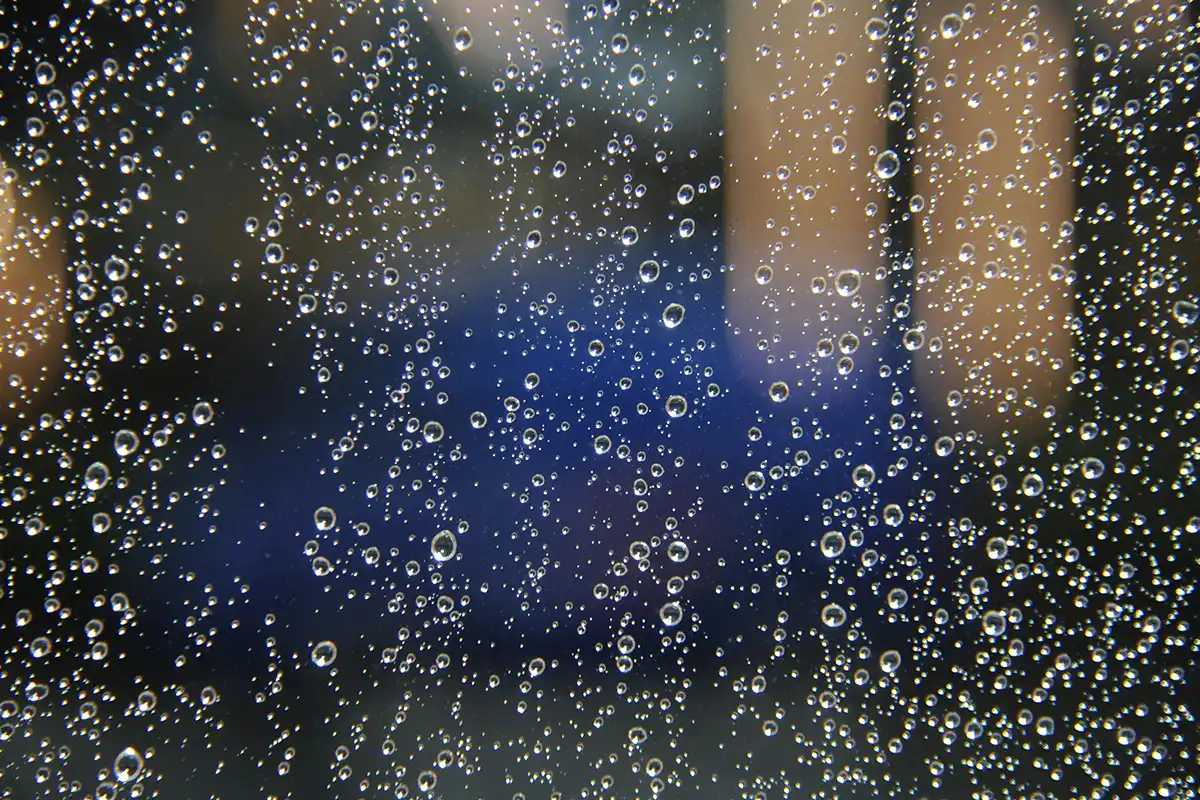
If you’ve lived in Maricopa County, Arizona, long enough, you’ll know that we don’t get a lot of rain here. In fact, we get less than 10 inches of rain annually, which is far less than the national average. Even so, when we do get rain, which is generally during the Summer monsoon season, you might end up seeing streaks and spots that weren’t there before the rain.
That said, many folks believe rain acts as a free window cleaner, rinsing away grime with nature’s help. Instead, the harsh reality is that rain often does the opposite…it can leave your home’s windows dirtier than before. But, why is that? Let’s discuss the answer to this very question.
Why Doesn’t the Rain Clean Your Windows?
Most people believe that rain water is pure, and therefore, clean. However, the truth is that rain water picks up dirt and minerals on its way down from the clouds, as it hits the roof or the exterior walls of your home. Then, as it dries on your windows, it leaves behind streaks and spots.
What’s Actually in Rain Water?
Rainwater isn’t just H2O. It carries hidden elements that end up clinging to glass.
Mineral Content and Hard Water Deposits
Most rain holds tiny bits of calcium and magnesium from the air and ground. As it flows from your roof and onto your windows, these leave a mineral build up behind. And as water dries, it leaves white spots on your windows, which are nothing more than classic hard water stains. Over time, these deposits etch into the glass, making cleaning tougher.
Airborne Pollutants and Acid Rain
Rain grabs smog, car exhaust and other airborne pollutants as it falls. These contaminants stick to your windows during the downpour. Once dry, they form a film that can be difficult to scrub off.
In areas like Maricopa County, AZ that have acid rain, this makes things worse. That’s because acid rain contains sulfur and nitrogen which can eat at old window frames or coatings, letting more dirt build up.
Surface Tension and Evaporation Dynamics
Water beads up on glass due to surface tension. In a quick rain, droplets don’t spread out, they sit and dry fast, particularly in warmer climates such as Phoenix or Scottsdale, Arizona. This traps dirt right where it lands.
Sun or wind speeds up drying, locking in residues. It’s like spilling juice on a counter; if you don’t wipe it quick, it stains.
External Factors Contributing to Grime
Rain doesn’t work alone. It joins your home’s surroundings to spread dirt. Find these sources, and you can cut down on the mess.
Environmental Dust and Soil Runoff
Storms wash dust from your roof and yard straight onto lower windows. Mud from driveways splashes up, too. This creates brown streaks that rain alone don’t make.
Near construction or dirt roads, it’s worse. Rain turns loose soil into slurry that coats everything.
Insect Activity and Organic Residue
Bugs love rainy days. Their droppings and pollen smear across wet glass. Tree sap mixes in, drying into sticky spots. After a shower, these marks stand out more. Rain spreads them before they set.
Wind Direction and Exposure
Storms blow contaminants from one side of your house. Windows facing the wind catch the most. Rain carries pollen, dust and city haze right to them.
Homes near highways see extra oil residue from cars. It rains down and sticks.
Check your yard’s wind patterns. Protect exposed sides with screens or plants to block some buildup.
When the Rain Cleans (And Why It Works Sometimes)
Rain isn’t all bad. Under the right conditions, it can rinse light dirt away. But these instances are rare.
The Role of Light, Steady Showers
A gentle drizzle sheets water over glass, washing off loose dust. It doesn’t evaporate too fast, so residues flow off. Heavy pours, though, splash and spot.
What Can You Do to Mitigate the Effects of Rainfall on Your Windows?
- If your home has gutters, clean them before big rains to stop overflow.
- Trim overhanging branches to block leaf debris.
- Rinse the exterior walls of your home yearly to keep runoff clean.
- Avoid having your windows cleaned right after rain…let surfaces dry first. Fresh grime needs time to set for easy removal.
- Have your windows cleaned on a regular basis keeps buildup from dirt and other contaminants low.